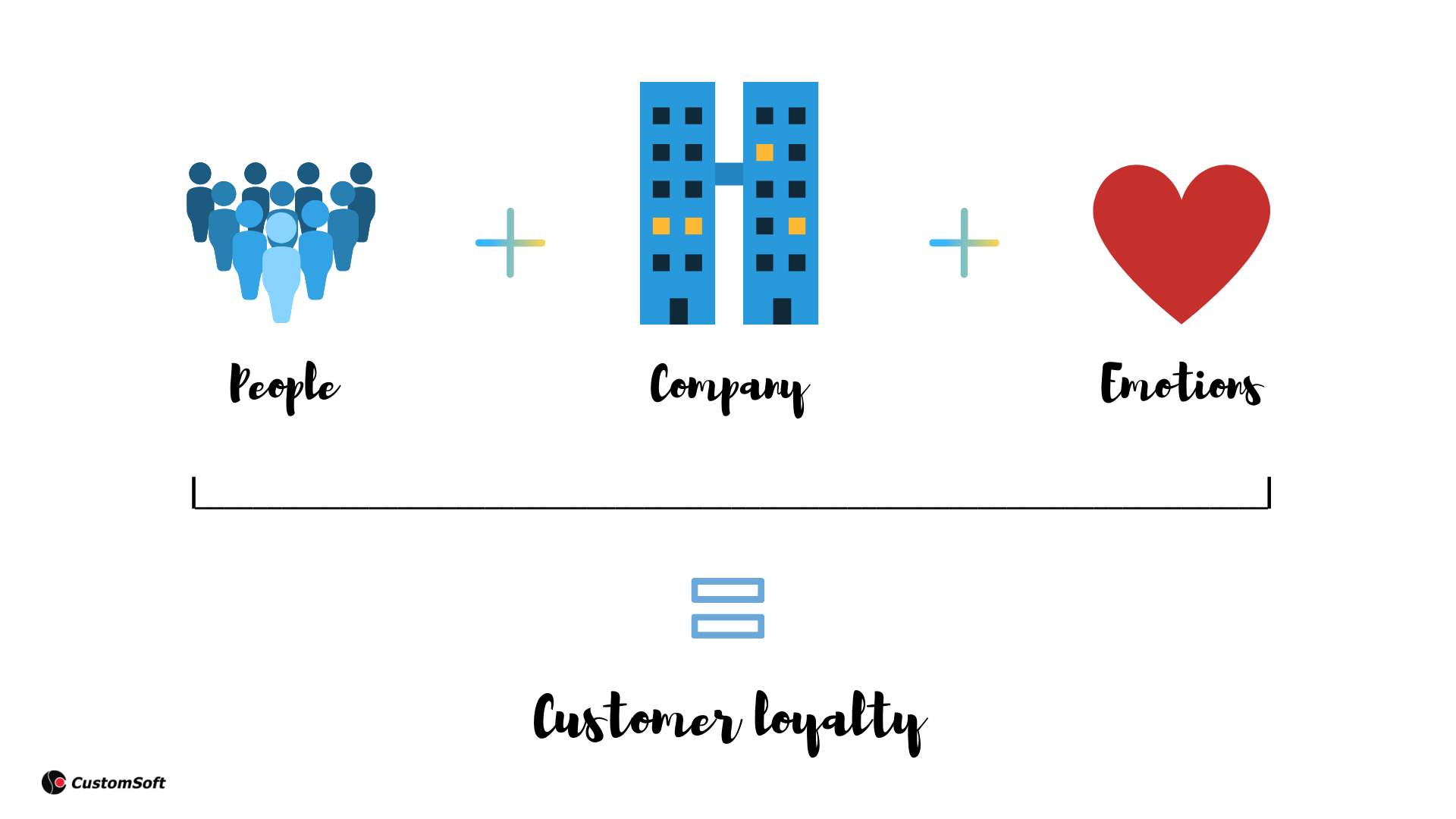In a world where competition is growing, customer loyalty is essential in the long-term for your business success. A definition of customer loyalty would be “an emotional bonding between an organization and its customers”. In the B2B environment, the sales cycle is longer, and the cost for customer acquisition is higher. Let’s discuss the reasons why customer loyalty is very important for your business.

3 reasons why customer loyalty is important in the B2B environment:
1. Repeat business
Loyal customers are more likely to purchase from you again because they already know they will be satisfied. Also, according to Pareto’s Principle, or the 80/20 rule, 80% of your sales come from 20% of your customers. To determine that 20% of customers, ask yourself three questions:
– Who spent the most money?
– Who bought the most recently?
– Who buys the most frequently?
This doesn’t mean that you should ignore the rest of your customers. It means that you should focus a part of your efforts towards turning them into repeating customers.
2. Reduce marketing costs

Even if we are in the digital era for quite some time, word of mouth is still very powerful, especially in the B2B environment. Word of mouth is an important marketing tool, it helps engage customers, generate prospects and increase brand awareness.
There are multiple ways to reduce marketing costs while increasing customer loyalty:
– analyze your data, notice the trends among your customers and create your marketing strategies around them, instead of investing in every possibility and not getting enough in return;
– educate your customers: invest in educating your B2B customers about your products and services, instead of just trying to sell, and they will trust you more;
– don’t make obvious mistakes when you approach your customers. Make sure your presentations are well designed, lack errors and that you present yourself as a professional, it also helps with building your reputation.
3. Opportunities for cross-selling and upselling
Let’s discuss cross-selling and upselling.
Cross-selling is a sales technique that you can use to get the customer to spend more money by purchasing a product related to what they already bought.
Upselling is a sales technique that you can use to get a customer to spend more by buying an upgraded version of what they are already purchasing.
Both of the techniques are important, and they belong to the type of “suggestive selling”, as they add to the total value of the order.
If a customer is loyal, it is easier to cross-sell or upsell products to him without much effort, which increases sales volume without the acquisition of new customers.

We have discussed the importance of customer loyalty in B2B. Improving a customer’s experience is a great way to increase retention, build your brand reputation and increase brand awareness. Create a B2B loyalty program because it creates excitement and engagement among your customers, which is a great way to maintain a business relationship.
According to the statistics, it costs 5 percent more to acquire a new customer than it does to keep a current one, and also it costs up to 16 times more to bring a new customer up to the same level as a current one.
How to build customer loyalty in the B2B environment:
1. Create a loyalty program that awards your customers and use it as an incentive to make them buy more. Start by deciding which actions you want to reward, such as referrals, reviews, bought quantity, etc.
2. Have outstanding customer service. Plenty of business partnerships stopped because of faulty customer service. People want their problems solved as fast as possible, and those in the B2B environment have issues that are usually more complex than the regular ones from B2C. The best approach is to try and anticipate their needs, so you can be prepared to offer excellent assistance.
3. Encourage referrals. Word of mouth is very powerful in the B2B environment, and a satisfied customer can refer to future potential customers. Set up a referral program and make sure you reward the existing customers that bring you new ones.
4. Measure customer satisfaction and shape your actions according to the feedback you receive. Your customers can provide you with valuable insights that you can use to adjust your business, to fit their needs better. This increases customer retention and satisfaction, which leads to loyalty in the long term.
5. Show your customers that you appreciate their business constantly. To increase loyalty and build long-term relationships, you should show your customers how much you are valuing them.

6. Invest in innovation and product improvement. Customer loyalty is heavily influenced by the quality of your products and services. Make sure you deliver a flawless experience and good quality products.
7. Host free events for your customers where you teach them something relevant to their field. You reinforce your company’s brand, establish yourself as an expert, build trust and increase loyalty.
8. Improve customer experience with marketing personalization.
9. Re-engage inactive customers with loyalty programs. Sometimes customers need an incentive to take your company again into consideration, and a loyalty program for inactive customers seems to be the best solution.
10. Offer personalized service for your most important customers.
The goal of a company should be to build customer loyalty. This helps sales in the long term. Having loyal customers is crucial for your business, having a small group of them can make the difference between success and failure. Also, building loyalty is a great way to increase customer retention.
Do you want to find out more about how to improve customer experience in e-commerce? Check out this article.
Curious to learn more about e-commerce? We have plenty of articles that will help you.
